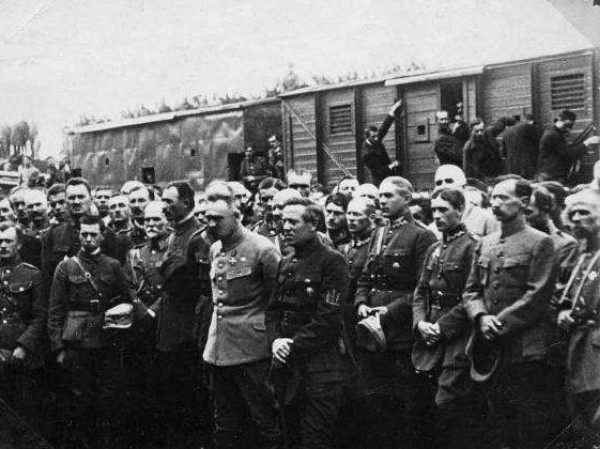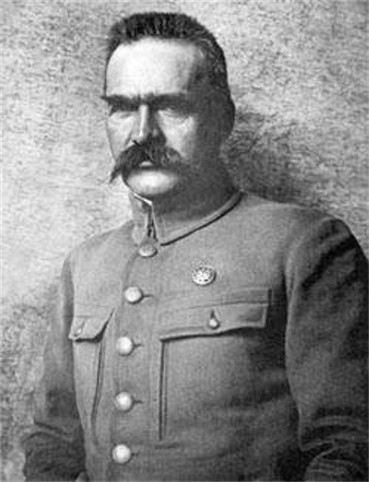Piłsudski, Józef
Piłsudski, Józef, b 5 December 1867 in Zulavas, Švenčionys county, Lithuania, d 12 May 1935 in Warsaw. (Photo: Józef Piłsudski.) Polish military leader and statesman. Before coming to power Piłsudski had advocated the dismemberment of the Russian Empire and an East European federation of Poland, Ukraine, Lithuania, and Belarus. Although his scheme reserved a dominant role for Poland, it did not receive much Polish public support. Consequently, after coming to power, Piłsudski actively backed Polish revanchist territorial claims to Western Ukraine. In April 1919 he sent Józef Haller's army into Galicia (see Ukrainian-Polish War in Galicia, 1918–19). To counter the Red Army offensive against Poland he concluded the Treaty of Warsaw with the government of the Ukrainian National Republic in April 1920. After the allied Polish-UNR forces were forced to retreat from Ukraine and Belarus, he organized a successful counteroffensive in which the Army of the Ukrainian National Republic played a major role (see Ukrainian-Soviet War, 1917–21). Piłsudski's signing of the Peace Treaty of Riga, which partitioned Ukraine and Belarus between Poland and Soviet Russia, put an end to his dreams of East-European ‘federalism.’
Resistance to the Polish occupation of Galicia and Volhynia continued after the war: in September 1921 Stepan S. Fedak, a member of the Ukrainian Military Organization, tried to assassinate Piłsudski. With the election of the new Polish president, Gabriel Narutowicz, in December 1922, Piłsudski remained chief of the Polish General Staff. When a right-wing government took power in May 1923, he retired. Disturbed by the political and economic chaos in Poland, he came out of retirement in May 1926 to lead a military coup d'état. Thenceforth Piłsudski, as defense minister in the Sanacja regime, controlled Poland, while preserving the trappings of parliamentary rule.
Western Ukrainians remained suspicious of Piłsudski's new regime, supported as it was by the conservative Polish nobility in Western Ukraine. Although some of Piłsudski's closest associates (eg, Tadeusz Hołówko, Piotr Dunin-Borkowski) sympathized with Western Ukrainians, and his government subsidized the Government-in-exile of the Ukrainian National Republic, nothing was done to stem Polonization and the administration's anti-Ukrainian policies in Western Ukraine. The Ukrainian-Polish conflict grew steadily and assumed mass proportions in the 1930 Pacification of Galicia. In September 1934 Piłsudski proposed an agreement protecting Poland's national minorities, but his foreign minister, J. Beck, would not endorse it. The political unrest that followed Piłsudski's death considerably weakened the Polish state.
BIBLIOGRAPHY
Piłsudski, J. Pisma zbiorowe, 10 vols (Warsaw 1937–8)
Rothschild, J. Piłsudski's Coup d'Etat (New York 1966)
Dziewanowski, M. Joseph Piłsudski: A European Federalist, 1918–1922 (Stanford, Calif 1969)
Palij, M. The Ukrainian-Polish Defensive Alliance, 1919–1921: An Aspect of the Ukrainian Revolution (Edmonton–Toronto 1995)
Bohdan Budurowycz
[This article originally appeared in the Encyclopedia of Ukraine, vol. 4 (1993).]


